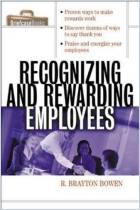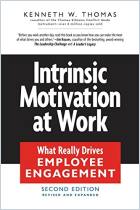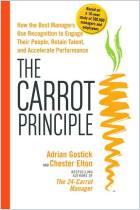Únase a getAbstract para acceder al resumen.

Únase a getAbstract para acceder al resumen.
David Sirota, Louis A. Mischkind and Michael Irwin Meltzer
The Enthusiastic Employee
How Companies Profit by Giving Workers What They Want
Wharton School Publishing, 2005
¿De qué se trata?
Motivate your employees by giving them what they`ve been asking for: equity, achievement and camaraderie.
Recommendation
Just about anyone who supervises other people would benefit from reading this book, which reports the findings of three decades of research involving some 2.5 million employees in 237 companies. The book's research-based motivational strategies are immediately applicable to your company's morale and productivity. Authors David Sirota, Louis A. Mischkind and Michael Irwin Meltzer deliver revealing statistics, useful definitions and illuminating case histories in pretty accessible prose, given the book's survey-driven foundation. The one lack is that they do not set guidelines for distinguishing legitimately dissatisfied employees from the few workers who will never have a good attitude - no matter what you do. And, as the authors make clear, some managers are set in their ways, habitually act superior to their workers and will not tend to employee motivation. For such managers, this book - and most others - will prove useless. However, if you have an open mind and genuinely want to improve morale and productivity, getAbstract.com recommends this thorough work on motivation.
Summary
About the Authors
David Sirota, founder and chairman emeritus of a private consulting practice, has a Ph.D. in social psychology from the University of Michigan. Before joining Sirota's practice, Louis A. Mischkind was program director of executive development for a major company; he has a Ph.D. in organizational psychology from NYU. Michael Irwin Meltzer served as general counsel for Sirota's firm for 20 years before becoming its managing director in 2001.

















Comment on this summary